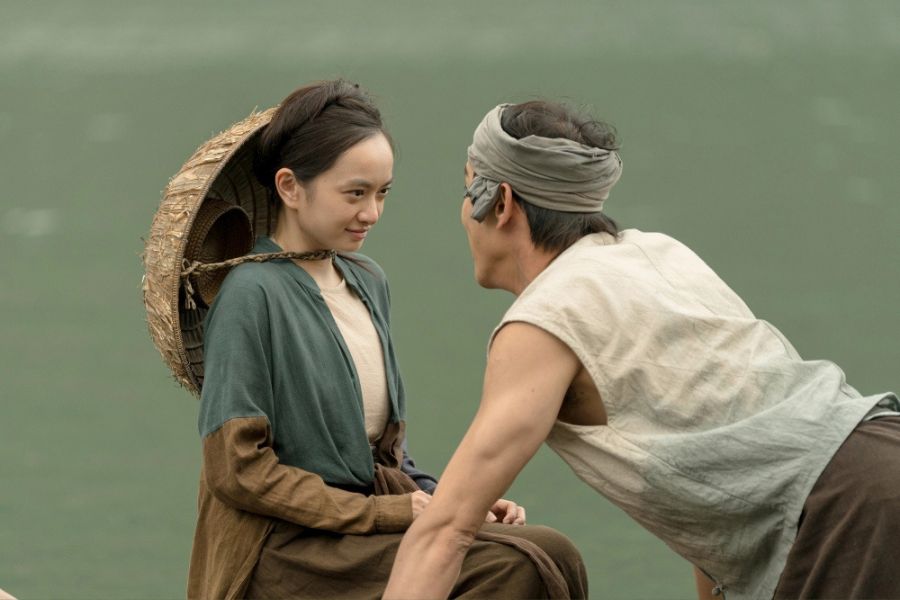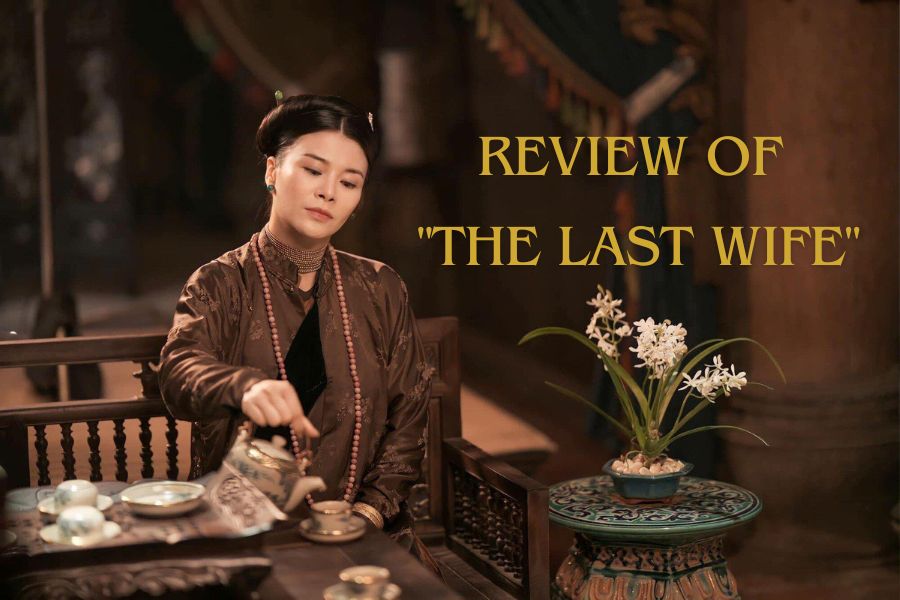The 18+ film “The Last Wife” by Victor Vu explores the fate of a legal wife in feudal times with an intricately designed setting but a lackluster script.
Released on November 3rd, the film marks Victor Vu’s return to the historical genre after 11 years since “The Immortal Hero” (2012). In this new film, the overseas Vietnamese director pursues a blend of psychological and romantic elements with a touch of mystery.
The script draws inspiration from the novel “Lake of Resentment” by Hong Thai, making significant changes to key plot points. Opening with the protagonist Linh (Kaity Nguyen) narrating her story, the director reveals the identity of a poor girl forced into marriage with a district official (Quang Thang). As a legal wife in a wealthy household, Linh lives in humiliation, mistreated by the first wife (Kim Oanh) and treated as a mere servant. She is compelled to bear a son but only manages to give birth to a daughter.
After enduring seven years of hardship, Linh coincidentally encounters Nhan (Thuan Nguyen), her first love, at a market. Emotions flare up, and the two characters become entangled in a clandestine affair, leading to a tragic chain of events.
Strengths of “The Last Wife” according to personal evaluation
Victor Vu showcases his strength in the film’s meticulously crafted setting. Beginning with a grand scene at Ba Be Lake (Bac Kan), the film transports viewers to the 19th-century Northern countryside. The director employs many aesthetically pleasing flycam shots, depicting the picturesque natural beauty—a familiar style from his previous works like “I See Yellow Flowers on Green Grass.”

Numerous segments delve deep into the lives of villagers in feudal times, showcasing the director’s artistic design expertise. The ancient culture is embedded in the opening scene when Linh enters her husband’s house. The poor houses are constructed with bamboo and thatched roofs, contrasting with the luxurious mansion of the district official. Women in traditional attire and conical hats gather for a summer festival, watching water puppetry. The market scene, with people trading goods, is vividly portrayed with a lively atmosphere.
Costumes sometimes serve as a directorial metaphor for the characters’ status and personalities. The first wife wears a sophisticated, brightly colored ao dai, symbolizing her power in the family and cunning nature. Linh, on the other hand, predominantly wears light-colored, simple clothes, implying her humble and submissive nature.
Some unconvincing aspects based on personal opinions
With a runtime of over two hours, the script feels stretched and lacks a distinctive motif. The plight of a legal wife in ancient times has been explored in both television and film, but Victor Vu’s storytelling and direction fail to bring a fresh perspective.
Having watched an early screening on November 2nd, viewer Tran Gia Tien (Ho Chi Minh City) criticizes the simplistic script and the director’s mild approach, lacking the dramatic intensity found in the novel. “I regret the content of the film. It would be much more captivating if adapted directly from the original story, fully exploring the investigative and intellectual aspects from the book, instead of just drawing inspiration,” the audience member states.
The first half of the film has a slow pace, primarily focusing on Linh’s struggles as the official’s daughter-in-law and her illicit affair with Nhan. The film employs a narrative technique interweaving present and past, allowing viewers to visualize the tragedy of Linh and Nhan, two individuals separated by the constraints of feudal times.

The director emphasizes the “hot” scenes between the lovers in a thatched-roof house, illustrating the contrast between the two relationships. For the district official, Linh is merely a tool to bear him a son, continuing his family line. For Nhan, Linh is cherished and respected, with him tenderly kissing the scars inflicted on her body.
In the latter half, the film gains intensity after the sudden death of a character. At this point, the film takes on a detective thriller tone with the introduction of Kien, an investigator (Quoc Huy). Victor Vu demonstrates his skill in successfully creating a chilling atmosphere around Kien’s investigative plot, reminiscent of similar tones in his previous acclaimed films like “Scandal” and “Bloody Heart.”
Dialogues are another weak point of the film. In many segments, the exchange between characters feels heavily scripted and fails to capture the essence of everyday life.
After the film’s release, on social media, many viewers criticize the inconsistency of characters, including the main character, speaking with a Southern accent despite the film being set in the North.
Victor Vu explains that Linh’s Southern accent is justified by the fact that her mother is from the South. He accepts that the film may be controversial for not using regional accents, as it would diminish the emotional impact on screen. According to the director, regional accents pose a common challenge in the film industry, as finding locally suitable actors while ensuring reputation, appearance, acting, and role compatibility is difficult.
Among the cast, Kaity Nguyen stands out due to her extensive screen time, appearing from start to finish. She vividly portrays the carefree image of a young woman in her twenties, blissfully in love with Nhan, until she steps into the official’s household and endures a life of suffering. In many scenes, the director focuses on the character’s melancholic eyes. The camera sometimes zooms in on Linh’s expressionless face, silent in the scenes of intimacy with the district official or when bound by shackles in the middle of the house.
In the supporting role, Quoc Huy’s Kien leaves a strong impression with his nuanced and tidy acting. The role of the investigator captures the audience’s sympathy due to the actor’s well-depicted portrayal of an intellectual from ancient times—wise, decisive, and humane. The rest of the cast, including Quang Thang and Kim Oanh, mainly play rounded roles without much depth.
